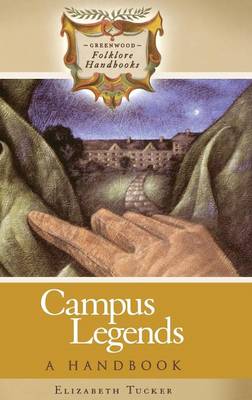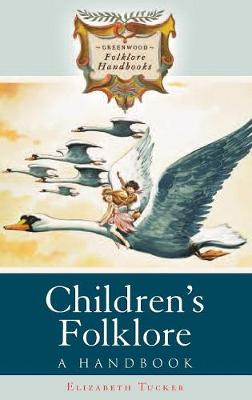Greenwood Folklore Handbooks
2 total works
Since the earliest days of universities, students have told stories about their daily lives, often emphasizing extraordinary, surprising, and baffling events. This book examines the fascinating world of college and university legends. While it primarily looks at legends, it also gives some attention to rumors, pranks, rituals, and other forms of folklore. Included are introductory chapters on types of campus folklore, a collection of some 50 legends from a broad range of colleges and universities, an overview of scholarship, and a discussion of campus legends in movies, television, and popular culture.
Since the earliest days of universities, students have told stories about their daily lives, often emphasizing extraordinary, surprising, and baffling events. Legends often dramatize certain hopes and fears, showing how stressful and exciting the college experience can be. From the stereotype of the absent minded professor to the adventures of spring break to the mysterious world of fraternities and sororities, campus legends have also become an important part of popular culture. This book provides a convenient, readable introduction to campus legends.
While the volume focuses primarily on legends, it also explores rumors, pranks, rituals, and other related folklore types. The book begins with an overview of college and university folklore. This is followed by a discussion of particular types of legends and other folklore genres. The handbook then presents some 50 examples of college and university legends, including ghost stories, urban legends, food lore, drinking tales, murders and suicides, and many others. These examples are accompanied by brief comments. The book next surveys scholarship on campus folklore and discusses the place of college and university legends in films, television, literature, and popular culture. The volume cites numerous print and electronic resources.
Children have their own games, stories, riddles, and so forth. This book gives students and general readers an introduction to children's folklore. Included are chapters on the definition and classification of children's folklore, the presence of children's folklore in literature and popular culture, and the scholarly interpretation of children's folklore. The volume also includes a wide range of examples and texts demonstrating the variety of children's folklore around the world.
Children have always had their own games, stories, riddles, jokes, and so forth. Many times, children's folklore differs significantly from the folklore of the adult world, as it reflects the particular concerns and experiences of childhood. In the late 19th century, children's folklore began receiving growing amounts of scholarly attention, and it is now one of the most popular topics among folklorists, general readers, and students. This book is a convenient and authoritative introduction to children's folklore for nonspecialists.
The volume begins with a discussion of how children's folklore is defined, and how various types of children's folklore are classified. This is followed by a generous selection of examples and texts illustrating the variety of children's folklore from around the world. The book then looks at how scholars have responded to children's folklore since the 19th century, and how children's folklore has become prominent in popular culture. A glossary and bibliography round out the volume.

